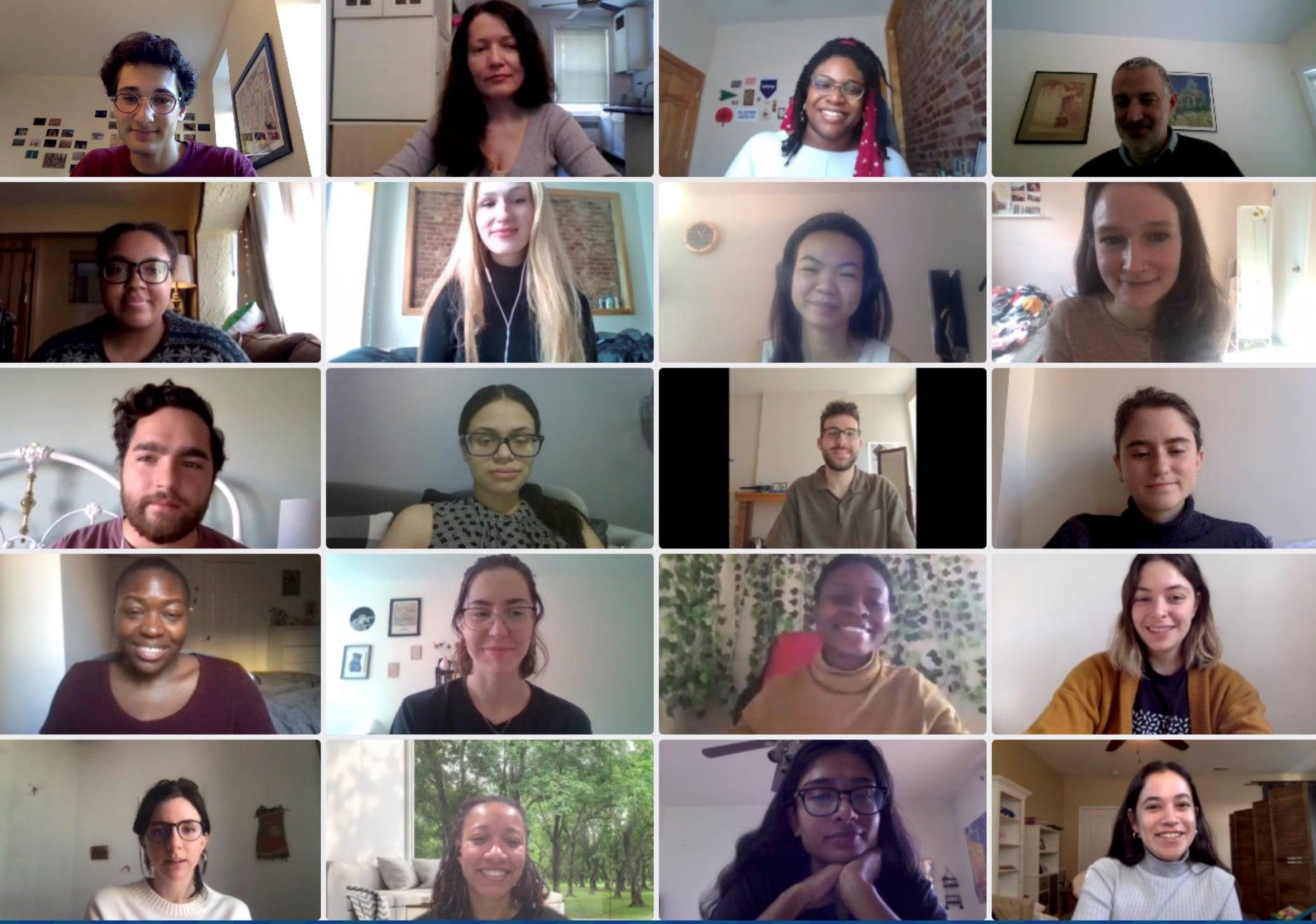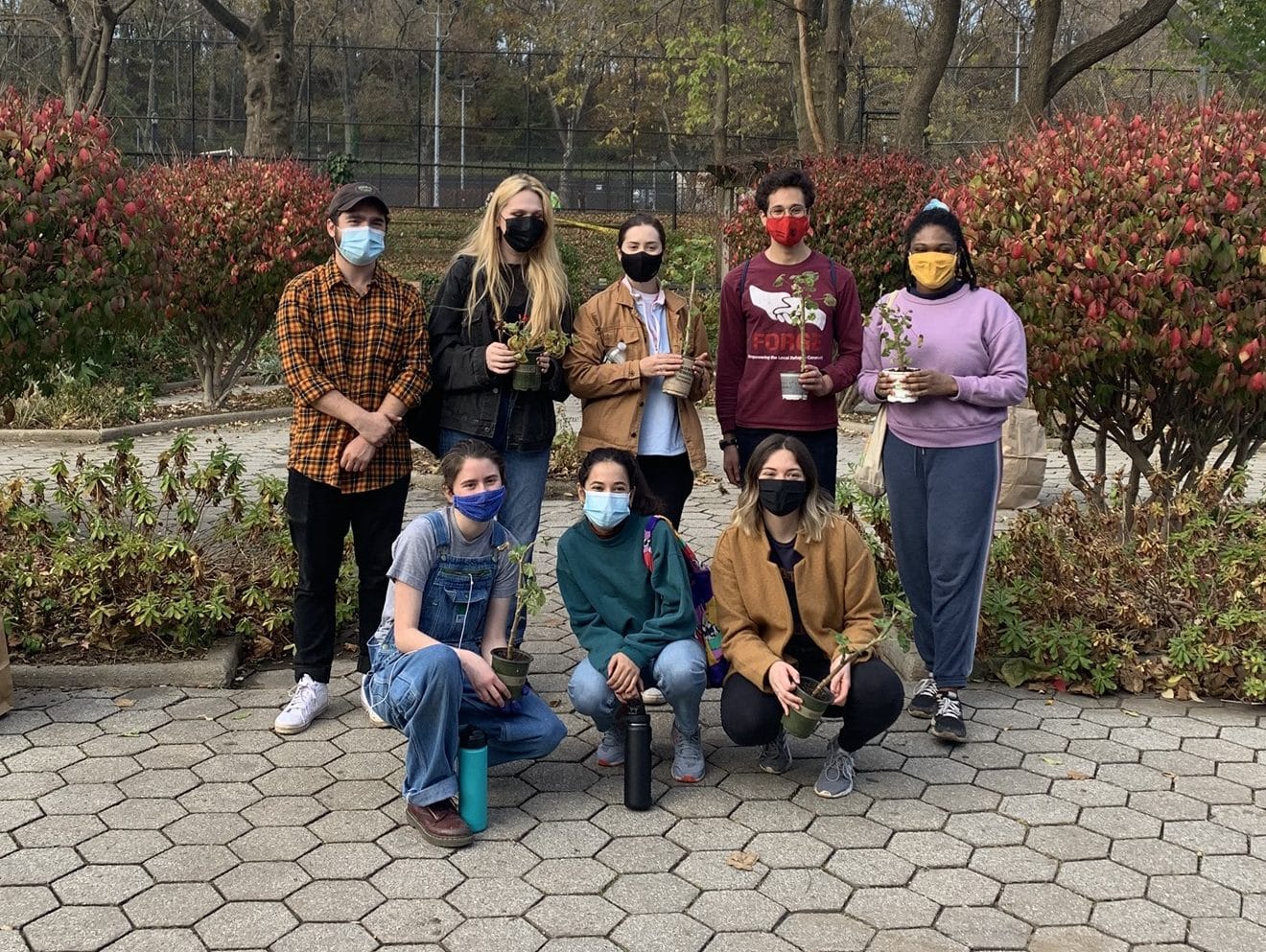
The New York City Urban Fellows Program is a highly selective, nine-month fellowship which combines work in Mayoral offices and City agencies with an intensive seminar series that explores current urban issues impacting public policy. Program participants are diverse and come from all over the country to work in New York City. After participating in an extensive interview process, New York City Urban Fellows are placed at an array of agencies across the City where they learn about public policy through a hands-on approach. Fellows receive a nine-month stipend of $30,000.
We talked to Juliana Poroye, a New York City Urban Fellow who is working in a family court, to learn more about the program and get some application tips.
1. What inspired you to apply for the New York City Urban Fellows Program?
In college, I majored in philosophy and political science and minored in political theory. I applied to the New York City Urban Fellows Program because I was fascinated by the way that theory could be used to improve society, and I wanted to learn how ideas were turned into policies that would impact people.
2. What is a typical week like for a New York City Urban Fellows Program?
A typical week depends on the type of agency a fellow is placed in. I work in the youth part of a family court. My week consists of scanning and drafting case documents, attending case reviews, observing court procedures, and revising internal reports for the Family Court Division. However, other fellows who are placed at agencies such as the Mayor’s Office of Criminal Justice, the Center for Youth Employment, the Taxi and Limousine Commission, or the Department of Health and Mental Hygiene have weeks that look dramatically different from mine. That said, one thing that is consistent in every fellow’s week is a seminar conducted by a senior executive of a city government agency. The fellows have heard from and enjoyed discussions with brilliant, inspiring people such as Carl Siciliano, the founder of the Ali Forney Center; Lisette Camilo, the Commissioner of DCAS; Gregg Russ, the Chair and CEO of NYCHA; Ana Bermúdez, the Commissioner for the Department of Probation, and many more.
Due to Covid-19, the Urban Fellows Program has had to proceed mostly virtually. In spite of this, we have been able to spend time with each other and engage in community-building activities. The program implemented an Urban Fellows Buddy system, in which fellows are paired up (or grouped in three) to discuss and get to know each other over a span of two weeks, after which time they are paired with a different fellow until every fellow has met every member of the cohort. Additionally, fellows casually meet for game nights during the weekend and also meet with fellows from the previous cohort. Also, fellows are connected with two alumni who give them advice during the program to help enhance their fellowship experience. Moreover, fellows participate in volunteer activities together. Late last year, some members volunteered at the Highland Park Community Garden.

3. What tips would you give others applying to the New York City Urban Fellows Program?
The Urban Fellows Program looks for individuals who have an interest in public service. Applicants should be able to demonstrate this through the activities, internships, and jobs that they held during and after college. I would advise someone applying to the program to be open to exploring different positions within city government. The program provides fellows with general exposure to New York City government, but it does not guarantee one’s placement at a particular agency.
Semi-finalists will receive an invitation to interview with NYC Urban Fellow affiliates, current Urban Fellows, and alumni of the program. In a normal year, applicants would participate in one group interview and two one-on-two interviews. Applicants should be generally aware of pertinent issues and events in New York City government and be prepared to answer basic questions about them, (in addition to questions about themselves). Something that can make candidates stand out during the interview process is demonstrating that they are collaborative because if they are offered a position in the program they will have to work on a team both at their agency and with their cohort.
One thing that I think helped me when applying to the fellowship was my personal statement. I used it as an opportunity to explain how I became interested in pursuing a career in public service. I discussed my personal background as a student who struggled in a public high school, connected it to education internships and jobs that my experience led me to hold in college, discussed how my internships and classes impacted my plans for a career, and finally noted how participating in the fellowship could help me to accomplish my goals.
Juliana Poroye graduated Summa Cum Laude from Hunter College. She was a Mellon Public Humanities fellow from 2019-2020, a Jewish Foundation for the Education for Women fellow from 2017-2019, and she was an Athena Scholar at Hunter College. Poroye currently works in the Family Court Division of the New York City Law Department as a New York City Urban Fellow. After the fellowship, she hopes to attend law school. Feel free to connect with her on LinkedIn.
Interested in applying? Bookmark the New York City Urban Fellows Program to your ProFellow account.
© ProFellow, LLC 2021, all rights reserved.